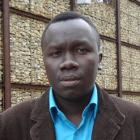On Power and Equatorians in South Sudan – By Brian Adeba

 One of the consequences of South Sudan’s descent into civil war in December 2013 is the polarisation of the country’s communities along ethnic lines, primarily between the Dinka and the Nuer. In this configuration, a key question is what is the role of Equatorians in the conflict.
One of the consequences of South Sudan’s descent into civil war in December 2013 is the polarisation of the country’s communities along ethnic lines, primarily between the Dinka and the Nuer. In this configuration, a key question is what is the role of Equatorians in the conflict.
Should Equatorians join either of the two camps led by President Salva Kiir and former vice president Riek Machar? Should they remain neutral? Or should they wage their own war with Juba?
It may seem ridiculous to define Equatorians as a single ethnic entity. But in South Sudan’s ethnicised politics, ethnicity is an important configuration used by the political elites, often at the expense of skill and experience, to determine the allocation and sharing of power. For instance to appear “˜fair’ in the allocation of government positions in a ministry, a parastatal or an embassy abroad, the power elites will often appoint some Dinka, some Nuer and a token Equatorian in the core leadership of the organisation.
This emanates from the fact that the elite in South Sudan, for reasons of political expedience, have embraced and adopted simplistic definitions and terms, which obscure a holistic understanding of fundamental fault lines, issues and situations afflicting the country.
An example of this simplistic definition is the designation of Equatorians as a single ethnic group. This is problematic for several reasons, especially with regard to the distribution of political power in South Sudan.
First, it has created an ethnic equity formula that political elites use to allocate government positions, where a token Equatorian is always thrust forward on the assumption that he or she represents the rest of Greater Equatoria. This formula ignores the rich ethnic diversity of Greater Equatoria, where nearly half of the country’s 64 ethnic groups live. In essence, although this formula was conceived to address inequality, it ends up discriminating against many Equatorians.
Nevertheless, Equatorians still like to view themselves as a collective for the same reasons of political expedience as their rivals. The notion of a collective has become an important tool to bolster bargaining power with an elite whose actions are characterised by overt nepotism in political appointments and power sharing.
As a result, the pervasive view among many Equatorians is that the government is a cabal of nepotistic, corrupt and inept individuals that does not have their interests at heart.
Since war broke out in December 2013, Equatorians have largely remained indifferent, much to the chagrin of the Kiir and Machar camps. This is likely due to the fact that no Equatorian leader has emerged to inspire them to join either camp or to form their own front.
On the government side, although James Wani Igga, the vice president, is an Equatorian, he does not inspire much confidence in his home region, mostly because he is viewed as a stooge and an apologist of the system. On the rebel side, Alfred Ladu Gore, an Equatorian, is deputy to Machar. But beyond Central Equatoria, he lacks brand recognition and charisma to induce a large following.
Some pretenders to the throne have appeared with a claim to forge an independent path for Equatorians. Wani Tombe, an academic who spends most of his time outside the country, launched such an initiative recently that instead of focusing on Equatorians in South Sudan, targeted the Equatorian Diaspora in the West.
With no grassroots support inside South Sudan, it is inconceivable that his agenda will advance where it matters most – inside the country. In the run-up to independence, Tombe was Khartoum’s South Sudanese front man who vigorously denounced the country’s eventual secession. In that regard, he has little credibility among Equatorians.
In January, a young junior army officer, Major Losuba Won’go, defected from the town of Maridi in Western Equatoria State with 200 soldiers to form a new rebel movement, which he has named the Revolutionary Movement for National Salvation. Although he may be viewed as a potential Equatorian leader, he is relatively new on the political scene and it remains to be seen whether his movement will gain traction in Greater Equatoria.
However, some quarters in Greater Equatoria, in efforts to be politically correct, have tried to downplay this indifference by saying that Equatorians are impartial because they must be a bridge between the warring parties. Nothing could be further from the truth.
This expression of indifference is best encapsulated in remarks made by Clement Kon’ga, governor of Central Equatoria State, when he said that Equatorians should not bother to take sides in the conflict because it is a war between the Dinka and Nuer.
But much as they have declined to take sides, the onset of war heralds a new political dawn for Equatorians. Its most obvious result will be the rearrangement of the political structure in South Sudan.
When that happens, the perennial issue of allocating political power will rear its head again. In this impending political dispensation, where will the Equatorians be? Will they be relegated to the periphery or will they be at the centre?
In post-independence South Sudan, entities that have felt muscled out of power have successfully used the gun to negotiate their way back in. For instance, the Murle people of Jonglei State, under David Yau Yau’s Cobra Faction, launched a serious insurgency against the government for a couple of years. This culminated in a peace deal that granted them a separate and autonomous jurisdiction within Jonglei.
Equatorians don’t currently have the gun and therefore their leverage in the immediate post-war transitional period is likely to be minimal. Aware of possible disenfranchisement, the governors of Eastern Equatoria, Central Equatoria and Western Equatoria states have formulated a position in February that is both pragmatic and forward-looking.
This position aims to retain a fair distribution of power at the executive, legislative and military levels. Among other things, it envisages a set up in which the president may be non-Equatorian but should be deputised by a first vice president who is an Equatorian.
It also envisages that the appointment of the cabinet, in the event of a power-sharing deal between the warring parties, should be based on regional representation to minimize disenfranchisement. At the legislative level, if the speaker of the national assembly is non-Equatorian, they must have two deputies, one of whom must be Equatorian.
Lastly, the governors’ position addresses security sector reform, a thorny issue because the army currently is divided into ethnic cocoons, which partly fueled the current hostilities. In addition to being predominantly Dinka, the situation has been exacerbated by the fact that the president himself is accused of running a parallel army, mostly Dinka and recruited from his home turf in the northern Bahr El Ghazel region.
A recently leaked African Union report on the genesis of the crisis in South Sudan testifies to this fact. A power-sharing deal with the Machar rebels may worsen the ethnicity debacle because thousands of fighters, mostly Nuer, may be integrated into the army.
Going forward, it is unlikely that the Equatorian governors’ recommendations will be adopted. A deeper introspection by Equatorians of their position in South Sudan’s politics is required. This position should evolve with the political situation and adopt methodologies that leverage power in a more robust manner.
Brian Adeba is an associate of the Security Governance Group in Canada. The views expressed here are his own.





